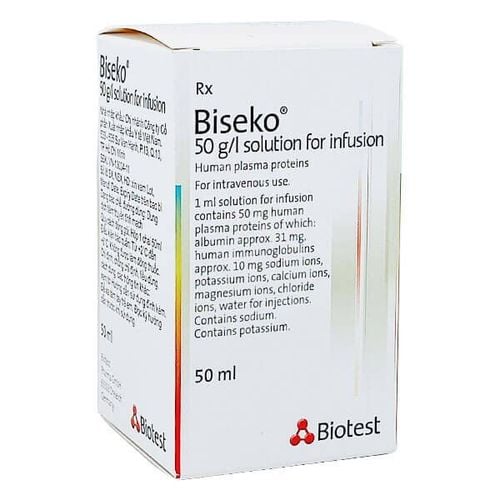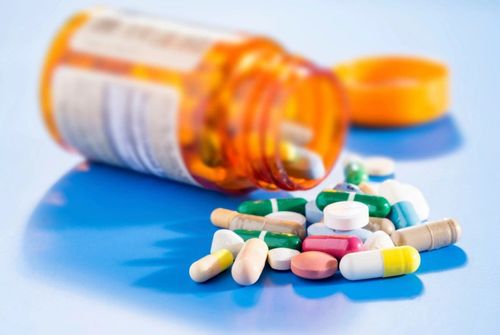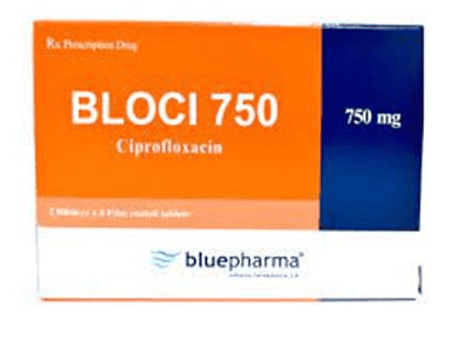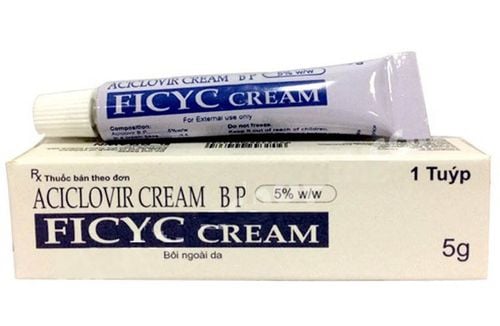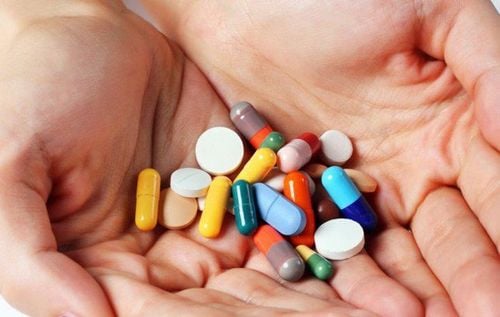This is an automatically translated article.
Meropenem is a powder for injection that belongs to the group of antiparasitic, anti-infective, antiviral and antifungal drugs. The drug is effective in the treatment of infections caused by bacteria.1. What is Meropenem 1g?
Meropenem is a carbapenem antibiotic that works by stopping the growth of bacteria. Meropenem is available in two forms: powder for injection and solution for injection.
Meropenem 1g is produced as a mixture of Meropenem trihydrate and sodium carbonate in a ratio of 1:0.208.
Meropenem is used to treat infections in adults and children caused by one or more bacteria sensitive to Meropenem as follows:
It is used to treat pneumonia and pneumonia diseases. institute. Urinary tract infections. Intra-abdominal infections. Patients with gynecological infections such as endometritis and pelvic inflammatory diseases. Skin and skin structure infections. Meningitis patients. Cases of bacteremia. It can be used to treat bacterial infections in adults with febrile neutropenia as monotherapy or in combination with antiviral or antifungal agents. Meropenem is a drug that has been shown to be effective in the treatment of mixed infections when used as monotherapy or in combination with other antibacterial agents.
The drug has also been shown to be effective in the treatment of bacterial infections in patients with cystic fibrosis and chronic lower respiratory tract infections.
2. Dosage of Meropenem and instructions for use
The information below about medication instructions is not a substitute for guidance from a medical professional. Therefore, it is necessary to inform the doctor about the medical condition before using the drug to ensure safety.
Dosage of Meropenem in adults:
Drugs for skin and structural infections: Use 500mg of meropenem injection, 8 hours apart. For infections caused by blue pus bacilli, you use 1g, every 8 hours. Usual dose for adults with intra-abdominal infections: You take 1g of the drug, once every 8 hours. Dosage for patients with hospital-acquired pneumonia: Take the drug once every 8 hours, 1g each time. The minimum duration of treatment is 7 days if the infection is not blue pus bacillus and the body has a good response to the drug. Usually, patients need treatment for a period of 7-21 days to completely treat the causative agent. Dosage of Meropenem in children:
Usual dose of Meropenem for children with skin and skin structure infections: 10mg/kg, 8 hours apart each time. The maximum dose is 500mg/dose. In the case of children with infections caused by blue pus bacilli, use 20mg/kg, once every 8 hours. Dosage for children with intra-abdominal infections: For children from 3 months of age and older: Use 20mg/kg, 8 hours apart each time. Maximum dose is 1g/dose.
For infants under 2 weeks old and born before about 32 weeks of pregnancy: Use 20mg/kg, once every 12 hours.
Newborns from 2 weeks old and born before about 32 weeks of pregnancy or more: use 30mg/kg, take 1 dose every 8 hours.
Meropenem dosage for children with meningitis: For children 3 months of age and older. Use 40mg/kg each time, take the drug once every 8 hours and use up to 2g/dose.
3. Undesirable effects may be encountered when using Meropenem
In the process of taking the drug, the occurrence of side effects is inevitable. However, it is rare for people taking Meropenem to experience serious side effects. Possible reactions reported:
Injection site reactions: possible inflammation, thrombophlebitis, pain at the injection site. Systemic allergic reactions such as angioedema and anaphylactic manifestations. Skin reactions: rash, pruritus, urticaria, rarely severe conditions such as erythema multiforme, Stevens-Johnson syndrome and toxic skin necrosis. Effects on the digestive system: Abdominal pain, nausea, vomiting and diarrhea may occur, pseudomembranous colitis. Drugs affecting liver function: the drug increases the concentration of bilirubin, liver enzymes, alkaline phosphatase and lactic dehydrogenase in the serum. Effects on the central nervous system: Causes headache, paresthesia, convulsions. Use of drugs that increase platelets, eosinophils, thrombocytopenia, leukopenia and neutropenia is reversible. Rarely, hemolytic anemia has occurred. In addition, when using the drug can cause oral and vaginal candidiasis.
4. What should the patient pay attention to in the course of taking the drug?
Do not use the medicine if you are allergic to any of its ingredients, allergic to penicillin or cephalosporin. The benefits and risks should be weighed before use in pregnant and lactating women. The medicine may cause headaches, itchy skin, or seizures. Therefore, you should not drive, use machinery, or do any activity that requires concentration and clear vision. Meropenem may cause live bacterial vaccines such as typhoid to not work as well. Do not get any vaccines while you are taking them unless instructed and advised by your doctor. Meropenem drug may interact with some other drugs such as valproic acid, sodium divalproex, sodium valproate, ... affecting the action of the drug you are taking and increasing the impact of side effects on health. . It is important to consult a doctor about taking the drug with food, alcohol and tobacco because they can interact with some drugs and affect the therapeutic effect of the medicine. Meropenem is an antibiotic that has been shown to be effective in the treatment of bacterial infections. The drug is relatively safe to use, but it is necessary to consult a doctor before using it to increase the effectiveness of the treatment.
Please dial HOTLINE for more information or register for an appointment HERE. Download MyVinmec app to make appointments faster and to manage your bookings easily.




